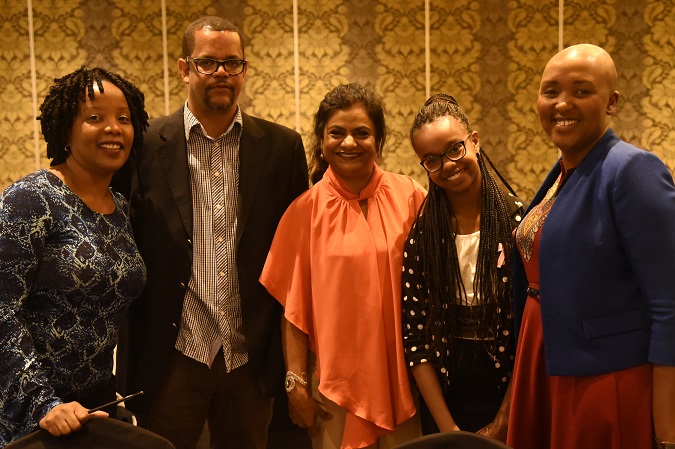Supplier Diversity and Inclusion: Building Relations with Women Owned Businesses
Date:

Over 70 women owned businesses (WOB) and senior representatives of companies in Kenya which are signatories to the Women’s Empowerment Principles (WEPs) attended an exciting forum convened by UN Women Kenya Country Office. Held in Nairobi on 16 October 2018, the forum was organized in response to requests by WOB in Kenya for more information about procurement opportunities in UN Women as a global market place.
The half day gathering focused on raising awareness about different market opportunities for WOBs ranging from local to regional and international markets, including procurement opportunities in UN Women as well as the larger UN Family. It is a well-known fact that while there is some progress, WOB continue to be underrepresented in various local and international markets for both goods and services. So, the question is, how can this narrative be changed?
Programme and operations staff from the Kenya Country Office as well as the Regional Office for East and Southern Africa teamed up to make a joint presentation on Procurement at UN Women which generated a lot of interest from WOB, many of whom admitted that they did not know before the forum about the UN as a global marketplace and the process of becoming a vendor.
Dr. Fatmata Sesay, Policy Adviser, Climate Smart Agriculture gave the opening remarks and emphasized the need for gender sensitive procurement (GRP) as a strategy to empower women economically. She mentioned the UN Women was reforming its procurement process to encourage more inclusivity in its supply chain. this includes purchasing through a gender sensitive lens.
Hon. Esther Pasarris, the Women’s Representative, Nairobi County gave a powerful keynote address in which she shared her personal journey as a successful and well- known social entrepreneur. Hon. Passaris openly shared her challenges including triumphs as a WOB in Kenya and gave practical tips on how to succeed and survive in the world of business where men continue to dominate especially when it comes to access to large profitable markets.
Banu Khan Programme Analyst UN Women gave an overview of opportunities for WOB in international markets including the African Continent and how WOB can a get a foot into the door in the different market spaces. She stressed the need for WOB to invest in building strong business foundations by putting organizational structures and procedures in place to have a competitive edge in a highly competitive market place.
Other topics covered during the forum included a session on unpacking the Company’s Act focusing on key elements of the Law that women entrepreneurs need to know as well as some of the common business- related pitfalls and how to avoid the same.
All the participants present rated the forum as “very useful” and urged UN Women to organize more forums as the biggest challenge for WOB is the lack of information especially opportunities to do business. Participants also provided feedback on the United Nations Global Market Platform (UNGM). This included the need for more frequent Business Information Forums about the UNGM (currently this is only held only once a year and many people missed out). A few others mentioned that they had attempted to register as vendors on the UNGM but found the process tedious and rather complicated calling for further simplification of the registration process. An important suggestion was the need for UN agencies to provide feedback to unsuccessful vendors so that that they can learn from mistakes and have a better chance of succeeding in the future. Another recommendation was for UN Women to reach out to more women through Business Service Organizations so that more women are equipped with knowledge and information on market access. One participant had this to say:
“I am very excited to hear that UN Women is not just telling other people out there about importance of supplier diversity and inclusion, but they themselves are also internalizing. They are actually having such initiatives as today’s forum to drive diversity and inclusion in procurement” Mucha Mulingo, Managing Director, Premier Training Services.
Moving forward:
This forum was an exciting and timely opportunity to begin a conversation around Procurement at UN Women. Gauging from the high-level of interest among participants on doing business with the UN, we intent to collaborate with other UN Agencies on gender sensitive procurement.
This initiative was undertaken by the Kenya Country Office under its project on mainstreaming gender in the private sector through the Women’s Empowerment Principles (WEPs). In 2017 and 2018, the initiative has focused on the implementation of Principle No 5 of the WEPs that calls on businesses to: implement enterprise development, supply chain and marketing practices that empower women